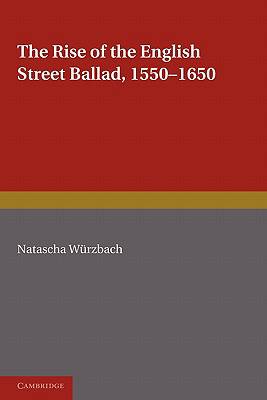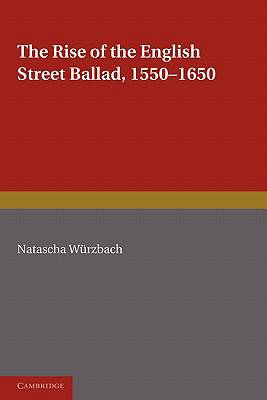
- Afhalen na 1 uur in een winkel met voorraad
- Gratis thuislevering in België vanaf € 30
- Ruim aanbod met 7 miljoen producten
- Afhalen na 1 uur in een winkel met voorraad
- Gratis thuislevering in België vanaf € 30
- Ruim aanbod met 7 miljoen producten
Zoeken
€ 67,95
+ 135 punten
Omschrijving
Originally published in German in 1981, and first published in English as this Cambridge edition in 1990, Natascha Würzbach's study of the street ballad was the first to investigate a specific genre of popular literature which had previously been vastly neglected. Attention is focused on the social and cultural conditions which accompanied its development. The contemporary reputation of the street ballad is examined, as is the importance of the genre for the history of ideas. It is also looked at as a literary form. In the period from 1550 to 1650 the street ballad was a widespread and well-known type of ephemeral literature which met the literary needs of the middle and lower classes. It decisively influenced the subsequent development of the ballad as a medium of entertainment and instruction, and such diverse forms as the popular songs and political ballads of the seventeenth and eighteenth centuries.
Specificaties
Betrokkenen
- Auteur(s):
- Vertaler(s):
- Uitgeverij:
Inhoud
- Aantal bladzijden:
- 372
- Taal:
- Engels
- Reeks:
Eigenschappen
- Productcode (EAN):
- 9780521177443
- Verschijningsdatum:
- 3/03/2011
- Uitvoering:
- Paperback
- Formaat:
- Trade paperback (VS)
- Afmetingen:
- 152 mm x 229 mm
- Gewicht:
- 544 g

Alleen bij Standaard Boekhandel
+ 135 punten op je klantenkaart van Standaard Boekhandel
Beoordelingen
We publiceren alleen reviews die voldoen aan de voorwaarden voor reviews. Bekijk onze voorwaarden voor reviews.











